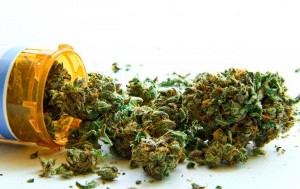
Dr. Michael Hart of London, Ontario is one of a few physicians in Canada that have chosen to voice their support for medical marijuana.
Under a new nationwide program introduced in April, doctors can write cannabis recommendations for patients who they feel might benefit from the drug. Some, like Dr. Hart, have already set up practices centered around the alternative treatment.
However, many physicians groups have pushed back against the new rules, with a number of provincial colleges issuing their own marijuana guidelines.
“Most are just unsure of how to prescribe it”Likewise, both the Canadian Medical Association and the Royal College of Physicians and Surgeons of Canada have warned doctors against prescribing cannabis.
But Dr. Hart believes the response from these groups isn’t necessarily representative of how most doctors feel. “I don’t think a lot of physicians are actually against medicinal marijuana. Most are just unsure of how to prescribe it,” he explains.
A lack of formal testing is what scares most doctors, says Dr. Louis Hugo Francescutti, president of the CMA. Until large-scale clinical trials are conducted, he notes, it’s unlikely that the majority will get on board with the new program.
“If the evidence is there, then I don’t think the profession would have any problems getting behind it. Doctors are not very keen to prescribe with a blindfold on,” he adds.
Evidence from human trials is required before any new drug can be authorized as a medicine. However, no company has yet to sponsor the necessary research on medical marijuana.
The problem is that marijuana in its herbal form cannot be patented, which makes research unprofitable.
But even with limited clinical data, Dr. Hart believes there’s enough reason to prescribe medical marijuana over other drugs. Prescription painkillers, for example, have proven to be far more deadly.
“Opioids kill more people per year than all illegal drugs combined. Marijuana has never killed anybody,” says Dr. Hart.
In fact, marijuana’s lack of overdose risk makes it less of a hazard than most drugs sold in pharmacies.
“I feel comfortable prescribing it because it’s safer than just about every other medicine I prescribe,” he concludes.
